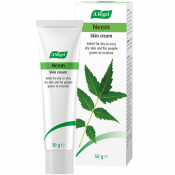An introduction to the symptoms of ichthyosis
Ichthyosis is well-known for its unfortunate and uncomfortable symptoms, often affecting your self-esteem and psychological wellbeing.
Nevertheless, it is still important that you are familiar with your symptoms and able to recognise what is and what is not normal.
Often, this level of understanding can help you to achieve a swifter diagnosis and enable you to identify when something is out of the ordinary.
Dry skin
Dry skin is one of the main characteristics of ichthyosis. Your skin becomes less able to retain moisture, succumbing to dryness and dehydration, until it begins to flake.
The dead skin cells can then start to accumulate on the epidermis, leading to a case of hyperkeratosis.
In some instances, your skin can become so dry that it starts to crack and bleed, making it crucial that you find a way of keeping your skin moisturised and nourished.
Scaling
The first symptom that comes to mind with ichthyosis, scaling occurs when the outer layer of skin is lost, becoming dry and eventually flaking away from the body in large pieces.
It can cause itchiness and be embarrassing, particularly if it appears on the scalp, arms or face.
In ichthyosis, scaling can be discoloured and appear anywhere in the body; however, it mostly manifests on the elbows, arms and lower legs.
Hyperkeratosis
Hyperkeratosis refers to an overproduction of the tough protein keratin, causing your skin to become thick and dry.
In instances of ichthyosis, this overproduction of keratin is often stimulated be a defective FLG gene, altering the behaviour of your keratinocytes, the cells responsible for producing keratin.
Itchiness
One of the more distracting symptoms of ichthyosis, itchiness often appears with dry, flaky skin.
When your immune system realises that your epidermis is being harmed, it will release a wave of inflammatory chemicals to the affected area, to try and speed up the healing process.
Unfortunately, these chemicals can cause a rash to develop and worsen any itchiness that you might be experiencing.
It would be advisable to try and avoid scratching your skin as this will only cause further damage and put you at risk of developing a secondary bacterial infection.
Stress
When you are suffering from a visible and irritating skin condition like ichthyosis, then it is naturally going to affect your mood and emotional wellbeing.
You might feel more self-conscious and find that your physical symptoms are affecting your confidence and self-esteem.
However, stress can exaggerate and enable your other symptoms so you should try to find ways of keeping calm during this period.
Sleep deprivation
If stress isn’t keeping you up at night, then the itchiness and flaking skin probably is.
Sleep deprivation can entail all sorts of nasty side-effects, from increasing your stress levels to weakening your immune system.
It is imperative that you find a way of getting a good night’s sleep so try looking at reducing your anxiety and easing your other physical symptoms.








